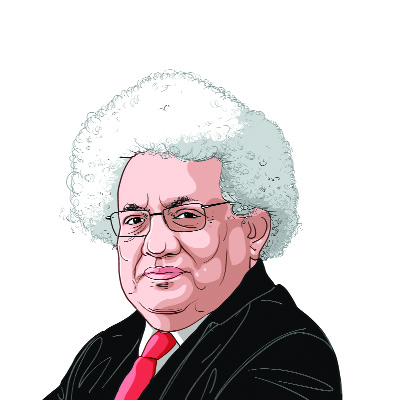Opinion Lenin Remembered
When I was in my teens in the Fifties,we used to have debates about Gandhi versus Lenin. Who was greater? Whose message would win in the end?....
When I was in my teens in the Fifties,we used to have debates about Gandhi versus Lenin. Who was greater? Whose message would win in the end? Of course,the younger people opted for Lenin since the USSR was all the rage. Gandhi was reactionary and a class compromiser. Our elders were shocked.
Now fifty years on,Lenin is a fading presence. The Chinese may paste his picture on a banner along with those of Marx,Engels and Stalin,but they do not take him seriously. Apart from the North Koreans,no one does. Of course,Gandhis name is taken in vain by hypocritical politicians and his smile decorates the currency notes whose main use is as black money which feeds Indian politics.
Yet,now that Communism is about to lose its base in West Bengal,there may be not any who care about Lenin in India either. But I have just read what is probably the best biography of Lenin and indeed one of the best biographies of anyone that I have read. This is Helen Rappaports Conspirator: Lenin in Exile. The many other Lenin biographies are either hagiopgraphies or cold war anti-communist rants. Helen Rappaport treats Lenin like a human being,a very intense,obsessive revolutionary who is willing to sacrifice everythinghimself,his wife Nadezhda (Nadya) Krupskaya,his lover Inessa Armand and his family in the service of his single-minded idea that his visions will triumph as an answer to Russia’s problems.
Lenin was born just a year after Gandhiji but died in 1924,almost at the same age as his father did and of the same problema stroke. Lenin spent seventeen years in exile,wandering from one to another of Europes many citiesGeneva,Zurich,Paris,London,Cracow and often even smaller towns and villages in Galicia and Switzerland. It was a life of penury and of constant fear of the long arm of the Okhranathe Czarist secret service. He,Krupskaya and her mother Elisaveta lived together often in one or two rooms with little furniture,no heating and short of money. What little money they had came from Party funds (swollen when Stalin managed to rob a bank) or from relations back in Russia. Krupskaya worked away at correspondence with party members back in Russia which had to be in code to escape the censor. All her life this was her main task.
Surviving often on just bread and some meat,Lenin just wrote and wrote. He went to the library in every town where he lived and went on organising how his faction would defeat the Mensheviks who were larger more respectable and richer. At times it is astonishing that a person can go on fighting with so little hope. We can see in retrospect that 1917 is only three years away after the War breaks out but Lenin was not to know till almost the last moment that his day had arrived.
Rappaport has done extensive research not just on Lenin but on the many people who met him or were just there at the time. James Joyce and Tristan Tzara,the Dadaist pioneer in Zurich,for instance. Maxim Gorky was always helpful and rich enough to afford a villa in Capri where Lenin could rest.
The book is a rich source on the life of among revolutionaries as they fought tyranny in their home countries by sheltering in freer atmosphere of London,Paris or Geneva. When the Russians met in London for their Party conference,they were surprised that the bobby did not ask to see their papers as the Russian police always did. Nor did the English care what the Russians talked about except to know that they were holding a Congress of Undesirables. There is a real international socialist movement in those pre war years and each helps out other. Despite Lenins constant quarrels with all other socialissm,they helped him with funds and support,even getting him out of jail when he was put in jail as a suspected Czarist spy.
After 1917,Lenin did not repay those socialists with any kindness. That was his way. And now his way is gone.


